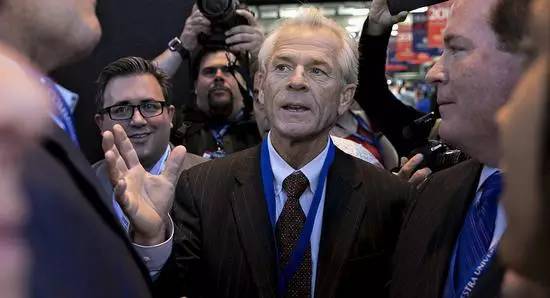Understanding the Peter Navarro Sign: Implications for Economic Policy and Trade Relations
#### What is the Peter Navarro Sign?The term "Peter Navarro Sign" refers to the economic principles and indicators advocated by Peter Navarro, a prominent e……
#### What is the Peter Navarro Sign?
The term "Peter Navarro Sign" refers to the economic principles and indicators advocated by Peter Navarro, a prominent economist and former trade advisor to President Donald Trump. Navarro is known for his strong stance on trade, particularly regarding China, and his belief in the importance of American manufacturing. The "sign" can be interpreted as a signal or indicator of the economic policies he supports, which often emphasize protectionism and a focus on domestic production.
#### The Economic Impact of the Peter Navarro Sign
Navarro's economic theories are rooted in the idea that trade deficits can harm the U.S. economy. He argues that a persistent trade deficit indicates that the country is losing jobs and manufacturing capacity to foreign competitors. The "Peter Navarro Sign" serves as a warning to policymakers about the potential dangers of unfettered free trade agreements.
Navarro's approach suggests that the U.S. should prioritize its manufacturing sector by implementing tariffs and other trade barriers to protect domestic industries. This perspective has gained traction in recent years, especially among those who believe that globalization has negatively impacted American workers.
#### Key Principles Behind the Peter Navarro Sign

Several key principles underpin the "Peter Navarro Sign":
1. **Trade Deficits**: Navarro argues that trade deficits are detrimental to the U.S. economy. He believes that they lead to job losses and a decline in manufacturing output. By advocating for policies that reduce these deficits, he aims to strengthen the American economy.
2. **Protectionism**: The "sign" emphasizes the need for protectionist measures, such as tariffs on imported goods. Navarro believes that these measures can help level the playing field for American manufacturers and encourage domestic production.
3. **National Security**: Navarro often links economic policy to national security. He argues that reliance on foreign supply chains can make the U.S. vulnerable to external shocks, such as trade wars or geopolitical tensions. The "Peter Navarro Sign" serves as a reminder of the importance of securing domestic manufacturing capabilities.

4. **Innovation and Competitiveness**: Navarro advocates for policies that promote innovation and competitiveness within the U.S. economy. He believes that investing in research and development, as well as education and training for American workers, is essential for maintaining a competitive edge in the global market.
#### Criticism of the Peter Navarro Sign
While Navarro's ideas have garnered support from some quarters, they have also faced significant criticism. Critics argue that protectionist measures can lead to higher prices for consumers and may provoke retaliatory actions from trading partners. They contend that free trade has historically contributed to economic growth and that Navarro's approach could undermine global economic cooperation.
Moreover, some economists caution that focusing solely on trade deficits overlooks other important factors that contribute to economic health, such as productivity and innovation. They argue that a more nuanced approach to trade policy is needed—one that balances the interests of workers, consumers, and businesses.

#### Conclusion: The Future of the Peter Navarro Sign
As the global economic landscape continues to evolve, the "Peter Navarro Sign" remains a significant point of discussion among policymakers and economists. Whether one agrees with Navarro's principles or not, it is clear that his ideas have sparked important conversations about the future of trade and economic policy in the United States.
Understanding the implications of the "Peter Navarro Sign" is crucial for anyone interested in the intersection of economics and politics. As the U.S. navigates its relationships with other countries, particularly in the context of trade, the principles associated with Navarro will likely continue to influence debates and policy decisions for years to come.